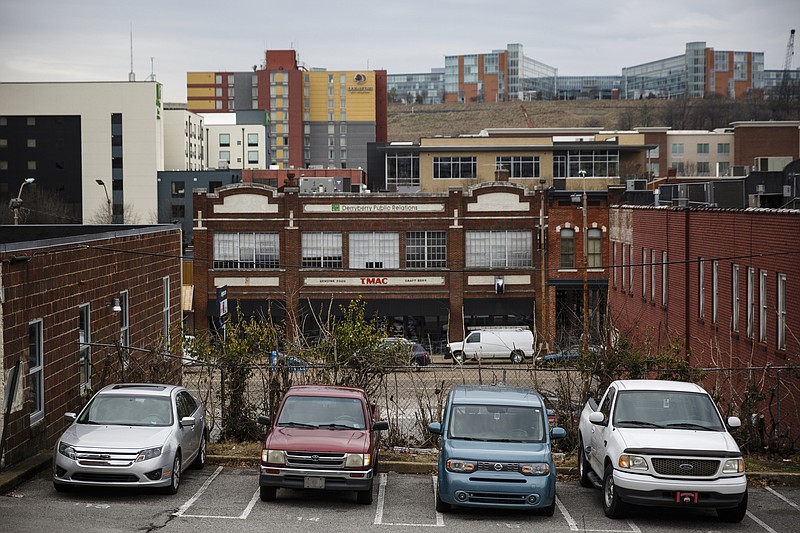If asked, nearly every Chattanoogan would have a parking woes story.
"Nothing was available downtown near where we wanted to eat." "I didn't want to use a parking garage to pick up an item that would take me five minutes." "Our downtown business can't grow if there aren't enough open spaces nearby for people who want to come."
But, says a recent study commissioned by The River City Co., a nonprofit redevelopment group, there's no overall shortage of parking downtown.
Chattanoogans want to park where they want to park. Call us spoiled. But while that may have been possible in a stagnant city, it's not in a growing, thriving, we-want-to-be-here city.
The study by San Francisco-based Nelson/Nygaard Consulting Associates has some recommendations, and they're sound ones. But like the church congregation that is told it has all the money it needs for a building project but it is in the wallets of its members, the recommendations can't be implemented in a vacuum.
Since fewer than a third of the 43,000 downtown parking places are available to the general public, it makes sense to determine if there aren't sharing agreements that could be worked out with private land owners, the study says. It also suggests rates could be adjusted in several places, depending on need and demand, and implemented in others where there is no parking cost now.
While no one is fond of the eyesore of parking garages, they might be beneficial in certain areas and could be positioned to hold shared spaces as well.
CARTA, as we have suggested previously, could be a regular conduit between outlying parking garages (public and private) and the central downtown district.
The $250,000 study factored in the growing variety of downtown housing and an expected doubling of residents in the district. Certainly, the number of hotels in the sector also has increased, and the city's positive exposure as a growing, vibrant, outdoor-oriented community can do nothing but bring in more visitors. But it's better to be proactive than to land huge conventions in the middle of, say, a summer in the future and find there's no parking space for anybody, tourists or locals.
With the study in hand, especially where it cites a need to manage first, then build approach, River City now will work with the city and other potentially involved parties on a committee to gauge short-, mid- and long-term solutions.
We believe the potential is there for smart public-private solutions and better now than later.
